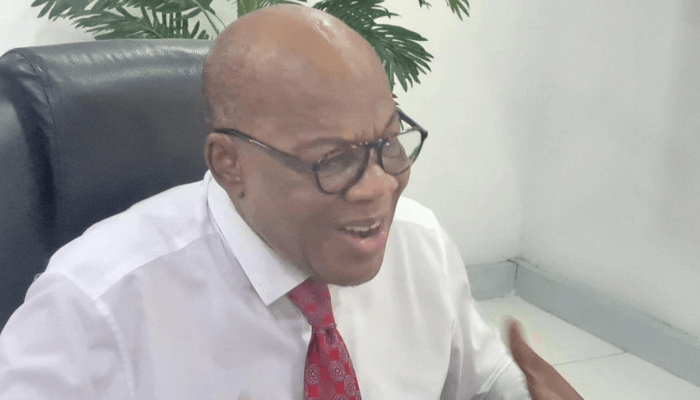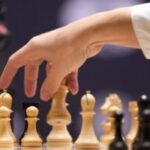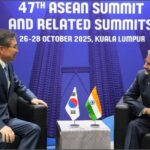A Senior Advocate of Nigeria (SAN), Olisa Agbakoba recently unveiled a policy document titled, ‘Devolution Is the Solution: Foundational Reform Agenda for Nigeria’s Transformation (a comprehensive policy framework for constitutional replacement, fiscal federalism, and economic transformation)’. Speaking with a select group of editors at the event, the former president of the Nigerian Bar Association (NBA) insisted that Nigeria would continue to grope in the dark unless devolution of powers was urgently carried out. He also spoke on a number of other issues bordering on socio-economic and political life of the country. ZEBULON AGOMUO brings the excerpts:
Looking at political development in Nigeria, many people say that things appear not be improving year-in-year out. The quality of leadership does not seem to be improving. Why is there no change?
That’s the critical question. So again, we see politicians. Not a word is ever said by most politicians about Nigeria’s development. And so, we say, when we confront the coming elections, what should voters look for? Because at the end of the day, I know there are challenges with electoral practice, but I think at the end of the day, it’s up to the voters to show what it is that they can do.
Because what I think all Nigerians of all shades are looking for would be good governance and how to make ends meet. Nigerians are one of the simplest people to lead. But the problem is with the leadership.
Exactly what is the problem?
I took a look at Nigeria and it took me back to the 60s when I was even very young. And I recall what Chief MKO Abiola told me. And I think that’s the problem. MKO said, you know, I have many wives. And the wives I have, have children. And children can be unruly because they may want different types of food on the same day. Some may want rice; some may want soup. So, what I did was I devolved my household into at least four majors, because you always had four major wives. One, two, three, four. From Simbiat to Kudirat, four. And he said, what gives me peace of mind is that I don’t have to centralise cooking.
You see the very simple example he has given. I don’t have to centralise cooking. The president of Nigeria should be able to understand leadership that way- allow the state governments to do it, while I deal with the central issues and all that. Not doing so- that is what is wrong with Nigeria. And it’s a big disappointment that a lot of the presidential candidates just pay lip service to the question of restructuring. That’s why I titled the document ‘Devolution is the Solution.’ I went back to Nigeria’s constitutions and stopped at the year 1963. I looked at the Constitution of 1963 and I found that it is the type of constitution which would allow us to have relative peace. Because I think Ojukwu was very, very clever. I think he was the only one who was actually prepared for the Aburi meeting. Aburi is a historical botanical garden that the colonial people built; full of big trees. I said, ah, there’s a reason that this place was chosen that that meeting. It’s a place conducive for peace talk. And General Sankara, who called the meeting, begged of all the participants, don’t come with your assistants. Just you alone. In fact, Ojukwu’s ashtray is still there. So, they all had a long, good chat and they agreed that this Abiola’s philosophy of devolving the kitchen would apply to Nigeria. And that’s why I titled this deliberately, ‘Devolution is the Solution.’
It’s simply impossible to govern Nigeria from Abuja. It’s not possible. That’s why things are not working.
And that’s why everybody is decamping, because the ruling party is the one that is so attractive. So, when I look at some of these governors, and I’m not interested in whether it’s PDP or APC frankly.
And I can tell you that no Nigerian is really interested. What Nigerians are interested in is good schools for their children, affordable food, Medicare. That’s what they’re interested in.
Anybody who can deliver that would be the person to be voted for. But you know there are obstacles.
But why is it that our politicians don’t talk about issues?
I can’t understand it. In the last six months, it’s about decamping from one party to the other. That’s the game. And it’s very saddening when even the press doesn’t report it properly. Can’t you guys ask these politicians, what is this thing about jumping from one party to the other? Why are you not concerned with the structural foundation of Nigeria? Why are you not concerned? Because that’s the issue. You have a storey building and you see the crack. Your son called and said, Daddy, look at this crack.
It’s growing. He called the bricklayer to chuck it and patch it. It will reopen. So, the cracks are there and keep reopening. President Tinubu was very, very eloquent in his manifesto and in his campaign about many things including restructuring. I personally don’t like the word ‘restructuring’ because it looks as if it’s breaking up. So, I prefer to use devolution, rebalancing. He was very eloquent. So was Peter Obi. So was Atiku. In all their manifestos, which I urge you to go and read again, that was the central theme. But why is it that nobody is doing anything? There is not a single leading presidential candidate, and I refer to it in the policy paper, that has championed devolution. And I think if they don’t do that, we’ll continue to dance around. It is open to question whether President Tinubu’s pivotal issues are good or bad for Nigeria. The pivotal issues were, one, the removal of subsidy, which has caused the present problem, and then, two, the floating of the currency, devaluation. Those two things, I hear some of the ministers, I hear Bayo Onanuga; I hear some of them call it economic reform, economic restructuring, but they’re not. They’re simply policy corrections. It’s like the bricklayer who purchased cement to patch up cracks on the wall of a dilapidated building. That can’t prevent the building from falling. They don’t deal with the structure of Nigeria. 774 local governments that we have, as you know, not even one is viable. So, that’s a problem. Not one single local government can run on its own. In New York, the port is regulated by the county. That’s the local government. So, the local government of Apapa should take the revenue from the port. But it is not, because port is assigned to the Exclusive List. So, there’s nothing in the Constitution that enables the local governments to run. It’s not really working. So, local governments are starved of funds. They can’t do anything. I was watching TV the other day. A county, I don’t remember the county now, there was some murder in the county. And the sheriff’s office came with about 20 cars. Think of even the Nigerian Police coming with 20 cars! In most of the local governments, you don’t even have a car. So, that’s the problem that I think we face. And I think, unless politicians address it, we’ll continue to be in this merry-go-round. Four years will come, we will come again, and we’ll talk about the same thing. There’s no way that will help the country. I think the CBN just did their monetary policy adjustments down by 50 basis points. But it has no meaning. Because I’m sure you all agree that all the statistical reports in Abuja are from the offices of the NBS, CBN. The only way to know whether Nigeria’s economic barometer is making progress is to ask the man on the street.
“To know whether Nigeria’s economic barometer is making progress is to ask the man on the street…”
It’s the only way. It’s not to go to Abuja and somebody reads the report, or World Bank says that our GDP grew to 3-point-something percent. How does that mean anything to anybody on the street when he’s buying rice, garri, and foodstuff at very high prices?
Do you think that Nigeria’s economic projection is achievable going by the pace things are moving?
One is that Nigeria hopes to be a $1 trillion economy. I don’t see it happening. It’s not going to happen unless we fundamentally do two things.
Restructure Nigeria by having a new constitution. I mean, one is absolutely shocked that it has taken 26 years. What year are we, 2025? It has taken 25 years for us to continue to discuss the fundamental document of Nigeria, which is the constitution.
We’ve been discussing it, and I’m asking myself, when will this discussion end? So, this is where the president needs to be absolutely on top of his game. The abdication of constitutional amendment, or alteration, or a new constitution to the National Assembly is conceptually wrong. It is the duty of Nigeria’s president to be on top of it.
And I would like to say, borrowing the words of the late Professor Ben Nwabueze, that the constitution of Nigeria is not rocket science. It can be sorted out in six months. Not until that happens, we will continue to be in this dilemma. So, that thing we are hoping to achieve, $1 trillion economy, will not happen in the context of the current challenges. Neither would we have the sort of growth for Nigeria to really grow. Because when they say 3.4 GDP, they forget there’s population growth.
So, for Nigeria to really start to think about growing, we are looking at double-digit growth, economic growth, of at least 17% per year for 10 years. Otherwise, we’re not going to grow. I’m not sure you are aware of the damage that has been done to people under the age of 30. If you go to the schools, you will see the sort of damage. Teachers, school equipment, everything is gone. It will take a very long time.
What should be the main focus of the political class, particularly those wishing to vie for presidency or governorship in 2027?
I named the leading ones in the policy document I released. And of course, before the elections, some other giants may emerge. But if they don’t confront the elephant in the room, and there’s only one elephant, economic and political structuring, we are going to be in this for a long time. In the policy document, I recommended that they must commit to a new constitution, state police with operational independence, resource control with minimum 50percent derivation, full Oronsaye implementation (merge/scrap 220 of 541 agencies) government divestment from all commercial enterprises, and maritime and aviation sector legislative reforms. I also added that such candidates must commit to justice sector transformation for contract enforcement, critical minerals and space industry development, and agricultural transformation unlocking N15trillion exports.
The National Assembly, although you have mentioned it. They have been doing amendments for 25 years. Some have said it’s not a review that we want. We want a referendum. We need a total overhaul of the process. What is your view?
I don’t think I’m interested in whether it is referendum or not. Because you can do referendum, and the process will not make it work. We need to ask ourselves, what will cure my injury? So, for me, I’m less interested in process than content. If the National Assembly is able to find a solution to Nigeria’s problems by identifying what we want, I’m happy with it. I can live with it. Because when we talk about referendum, the National Assembly says, well, we are the ones that have been elected by the people. So, the argument deviates. So, if that is the way to go, there’s no problem. But if the National Assembly can produce a constitution which we can accept, and I’ve given two models. I’ve given the Aburi model, and I’ve given the 1963 model. These are documents they can use. But I think that the president should be at the forefront of the drive. So, whichever model is used, what is important is, if we all read it, we’ll say, yes, this is what we want. But people are saying that still basing it on this current constitution, redoing it, that this current constitution is not the people’s constitution. It’s a kind of a military imposition, that we should dismantle that structure and come up with what exactly the people want. The problem with that argument is that you then get stuck with the problem that the National Assembly says, we are the people, elected by the people. And therefore, it is for us to do it.
So, to avoid that lock jam, because if you are thinking strategically, you want to avoid that lock jam, you then ask yourself, is content not better than process? So, if content that will satisfy everybody can be produced by the National Assembly, I can live with it. That’s my point.
How worried are you about the future of this country? You started the address by saying that from 1999 until now, nothing seems to have changed. Again, on page two of the document you presented, you listed what should be the commitment of any of the presidential aspirants that will show up. You listed about nine points; these are not new. As you noted, each of the presidential candidates during the presidential campaign in 2023 committed themselves to what they should be doing if they got elected, which I’m not sure they are now abiding by. What do you think may have limited them from abiding by their promises?
Yes, that’s the problem. That’s absolutely the problem. So, they make promises to get the votes, but they don’t deliver when they get there. And the other problem is that the institutions that ought to keep them in check are weak. Civil society is weak. The media is weak. The judiciary is weak. So, there’s no challenge. Political power is unbridled. And like the late professor always mentioned, the notion of limited government is so crucial because it makes government accountable. In spite of Trump’s dictatorship, he understands that his powers are limited. Right now, the American government is closed for 17 days because the Democrats say, no, we don’t accept that you remove Obamacare. See it? We do not accept it. Trump is not calling the leader of the minority, as you know it. So, those are the principles. So those are the issues. They find people who are in the Democratic Party on issues. I don’t understand how Mr. Diri, who claims to be governor of Bayelsa, what is he decamping to APC for? He’s doing second term. So, what is he decamping for?
The other day there was a protest over Nnamdi Kanu. Do you think he should be released?
What is Nnamdi Kanu talking about? He’s talking about Biafra. Now, Wole Soyinka once asked a question about Bakassi. Maybe, 300,000 people.
There were all sorts of theories. Go to the World Court, do this, do that. His question was very simple.
The people in Bakassi, who has asked their opinion? So, the people in Biafra or Southeast, has anybody asked their opinion? Nobody. That’s what democracy is all about. Nobody has asked their opinion. And I think that will resolve the question. I’m not sure that, I don’t know, but I’m not sure that Nnamdi Kanu will necessarily win if there’s a plebiscite. I’m not sure, I don’t know.
But I would just say, why do you lock a man for five years when there are other ways to resolve the problem? One way or the other. If you are very sure that Nigeria is so sweet, let’s have a referendum. So, you ask the Igbo people, do you want to be with us? They say no. Then, that’s it. But if you are providing goodies for people, they will be with you. So Nnamdi Kanu’s agitation would have been completely unpopular if goodies were coming.
Look at Boko Haram thing, Father Bishop told me, would have been completely unpopular if the very people who you say are Nigerians don’t go to Boko Haram and get 200 Naira and food. Because when you look at the choice, the government of Zamfara gives me nothing. The government of Boko Haram tells us to line up and every day they give us 200 Naira and food. Where would you go? I’m asking you. Where my hunger is taken care of? Which is where? You go to Boko Haram. So, it is so clear.
Nigeria on the index of failed states is declared as an extremely fragile state. The only thing keeping Nigeria is force of arms. Remove the police; remove the army, we’ll see whether things will be like this. So, that’s not how to have a country.
A country must be together for a purpose. And I feel that the Aburi Accords, the 1963 Constitution, provides relevant answers for Nigeria’s problems.











